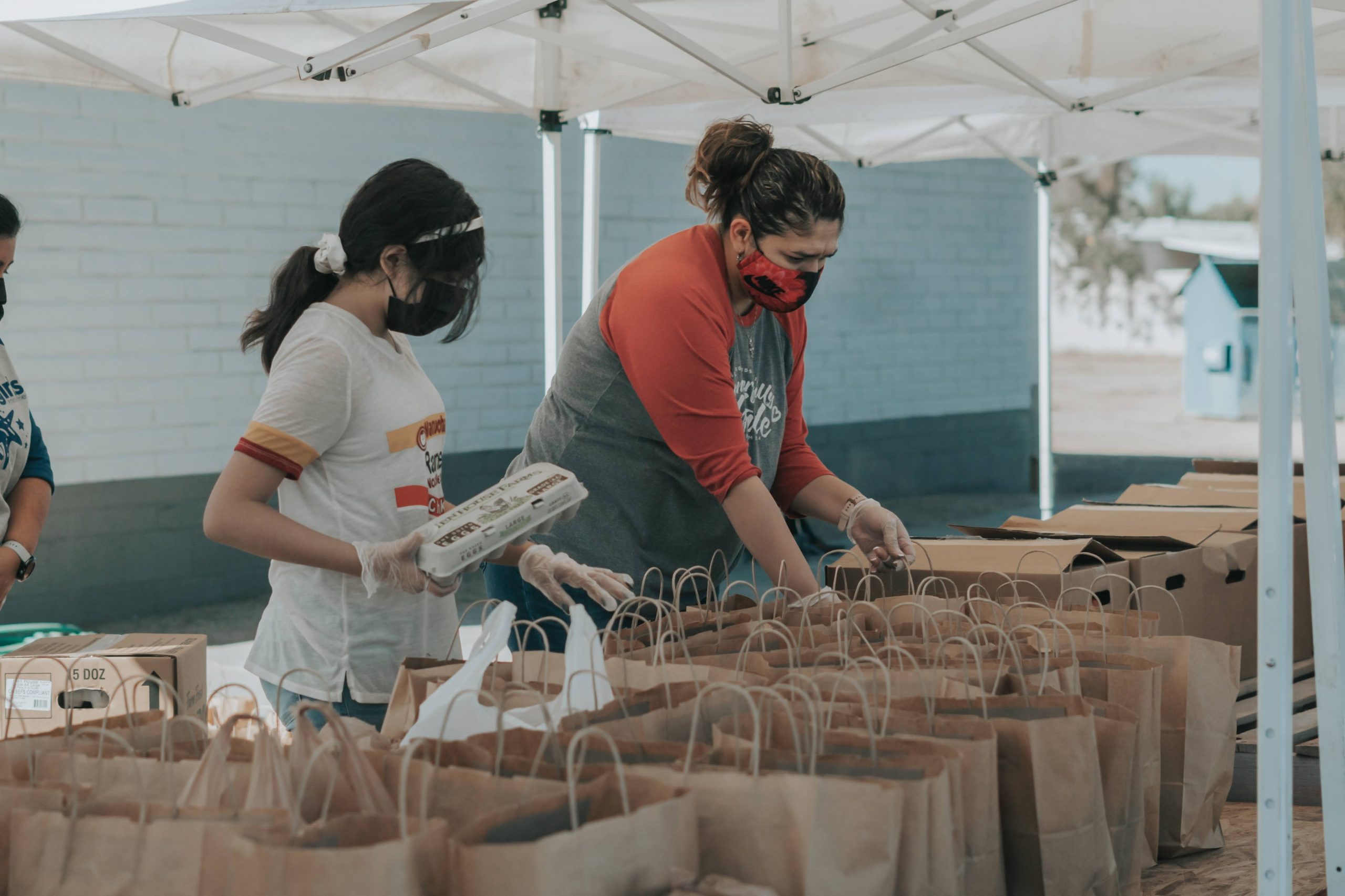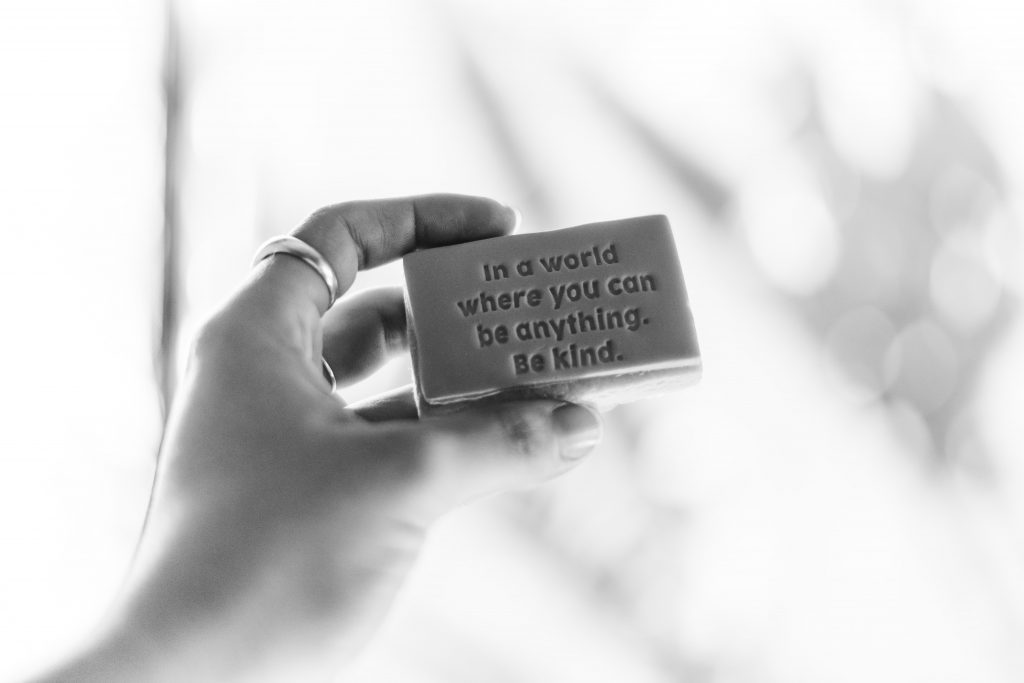
Volunteering and kindness
Volunteering is said to be a priceless act of kindness.
In some ways, the pandemic has been a great leveler; none of us have been immune to its effects, and we’ve all had our lives impacted and limited, regardless of our income, location, or celebrity status. However, it has had a hugely unequal impact on us in other ways as well. Job security, with some people losing their jobs, lack of access to gardens and green spaces during lockdown, the virus’s physical impact on those with health conditions, the virus’s prevalence and effects, to name a few. We’re seeing how the pandemic has the potential to exacerbate inequalities by disproportionately affecting the most vulnerable.
The good news is that volunteer work has been rising again. Although many countries are in a much better position than they were a year or so ago, it’s never too late to think about how you can contribute to your community and make a difference.
Besides volunteering, just being kind to one another can also have a huge impact on someone else’s life, as well as your own.
In 2020 I created a Pandemic Stress Management Workshop wherein I explain this:
I overheard someone say – just stop moaning about the pandemic! We are all in the same boat!
This got me thinking, however, I disagree.
We are all in the same STORM, yes, but we are each in our own individual boats fighting the storm.

We don’t know what is happening in someone else’s boat. We don’t know how many waves they are fighting in their boat, how big or small their boat is, how many people are involved or vulnerable in their boat. We just don’t know.
This is why it is so important to always, always be kind and show kindness to others. Sometimes we can try to put ourselves in someone else’s shoes, but we may still get it wrong or simply not see the full picture.
By now, the storm is certainly calmer than at the beginning, but there are 3rd and 4th waves and who knows how many more to come. Besides that, some people are more resilient than others or haven’t been hit as hard, so they were able to bounce back quickly and recover sooner. Others take longer.
So why not just be kind. We need help and volunteers and kindness now more than ever and it shouldn’t just be something we do because there is a virus, but rather something we continue to do on a regular basis.
Volunteering and kindness can take many forms, from a friendly hello and chat with an elderly neighbour to helping with shopping, paying for someone’s parking, or giving someone a hot drink or meal, to people who coordinate food banks and run support groups, or going out to rebuild societies and communities that have suffered a great loss.
Perhaps we need to rethink what volunteering means. We owe a huge debt of gratitude to the many thousands of volunteers who have given up countless hours to perform formal roles and have literally saved lives in the last year or two. However, we should not be discouraged by the notion that this is our only option for volunteering if we have limited time or are unable to commit to a long-term commitment.
Anything that we can do to reach out to others in our communities, to help in any way, is volunteering and every time we do a random, selfless act of kindness, without wanting anything in return, truly is being kind to another. We all have the capacity to give something back no matter how small.
Here are just a few reasons why you should consider volunteering if you haven’t done so already, or not doing so regularly:
1. Making a positive impact
Every volunteer has the potential to make a difference. Don’t undervalue your abilities. You have the power to make a big difference, no matter how small your actions are!
This is your chance to step outside of your comfort zone and do something meaningful.
2. You are needed!
There is no such thing as a small task, and volunteers are extremely valuable assets to any organisation. Everything matters a lot, whether it’s a financial, mental, or physical contribution. Volunteering allows you to directly participate in a noble cause while also providing care and affection to those who require it. This would also be an opportunity for you to realise that not everyone in the world is born lucky, and you’ll need to support at least a few of them.
3. Get hands-on experience
Being a part of any organisation will provide you with valuable work experience. If you assist with the administrative side of things, you will undoubtedly learn a lot about people, planning, and how to run a business. If you physically assist with various projects, it’s a fantastic way to gain on-the-job experience while interacting with people or animals you might want to work with later on in your career.
4. Teamwork
Volunteers are the ones who give an organisation a strong sense of camaraderie and teamwork. They also work with a wide range of people from various cultures and walks of life. Volunteers collaborate closely with these individuals in order to achieve a common goal.
5. Create a community
Depending on where you direct your volunteer efforts, you can make a significant difference in the lives of those served by the organisation. These efforts contribute to the development of various elements that make up a community. These are some of the elements that make up a community:
- Families should be supported (day-care and eldercare)
- Encourage young people (mentoring and after-school programs)
- Schools should be improved (tutoring, literacy)
- Animals should be protected (rescue and rehabilitation)
- Community Well-Being (Family and patient support and education)
- Enhance the community’s appearance (beach and park clean-ups)
6. Taking on social responsibilities
As a volunteer, you make the decision to devote your time and energy to a community and its residents. You’re giving back to the community by performing a valuable service and exercising social responsibility. If only everyone acted in such a selfless manner.
7. Give without expecting anything in return
Volunteers frequently choose to work with Not-for-profit Organizations in order to give back to the communities they know and love. It’s also a chance for people to support community resources that they use or know to make a significant difference in uplifting a community. If an organisation has aided someone you care about, returning the favour by volunteering is a very generous, thoughtful, and valuable way to express gratitude.
8. Boost your wellbeing
Giving your time to a good cause, believe it or not, can improve your physical and mental health. Your stress levels drop, and your mood brightens. You’re more likely to lift your emotions to a positive place, decrease your tension-producing patterns, which means less stress and a happier you if you focus your efforts on improving the lives of others.
9. Boost your Confidence:
You’ve probably heard that volunteering boosts your confidence – and it’s true! The more you try something, the more familiar you become with it, just like anything else you do. As previously stated, volunteering provides you with a wide range of opportunities to get involved with, as well as versatility in terms of experience and skills.
Confidence enables you to communicate more succinctly and clearly. It gives you the confidence to face any challenges that may arise as well as the willingness to try new things. Although it may not appear so, confidence is a highly valued skill in the workplace – and one that can be applied to any profession.
10. A path of discovery
Volunteering allows you to learn about different people and cultures, which leads to personal and professional development. Volunteers frequently discover hidden talents and passions, which boosts their self-esteem. The community in which you volunteer is also a great place to learn from because the people there come from various backgrounds and have different perspectives.
Besides the above-mentioned reasons for volunteering, perhaps you are simply not able to devote your time to volunteering at this stage of your life, however, nothing stops you from showing kindness towards others (as well as yourself!)

Happiness necessitates the presence of kindness and compassion. It inspires us to help others without expecting anything in return, to take care of one another, and to protect the environment.
In today’s world, it’s all too easy to get caught up in the trap of focusing on number one, of going out and getting what we want—the more of it we can get, the better. Our culture encourages us to succeed at the expense of others and preaches the survival of the fittest. Perhaps you’re currently struggling to keep your head above water, or you’re caring for someone who is vulnerable, and you’re worried you won’t be able to cope.
However, it doesn’t have to take time or money, or energy to show kindness or compassion to others. Just give back.
Whether that is flashing a smile at the cashier, waving to a child in a car, thanking the bin collector, or giving to a worthy cause, whether in the form of money or time, makes us feel good while also helping the cause or making someone’s day. The endorphins released in the brain when we perform acts of kindness are referred to as ‘helpers high.’
Our natural reaction is to want to help when we see someone in distress; we care about other people’s suffering, and we feel good when that suffering is alleviated. Whether we do it ourselves, watch it in a movie, or witness it in person, this is true. It gives us a pleasant feeling. Knowing that we are making a difference in the world and helping those in need brings us joy and meaning.
You could argue that it’s simple if you’re happy, have money, and have the time to help. It’s difficult to find compassion in your heart or mind when you’re busy, worried, and burned out. Yes, it makes it more difficult, but it’s not impossible, and it can actually bring you more joy at a time when you need it the most.
So put yourself out there. For volunteering or kindness and just show some compassion to the world. You’ll see, you will receive it back!
Volunteering and kindness

